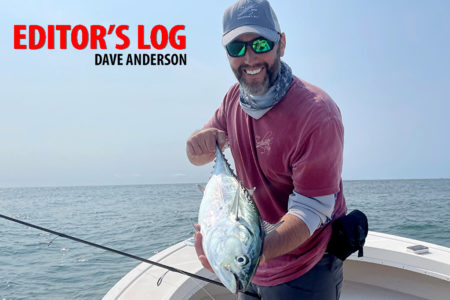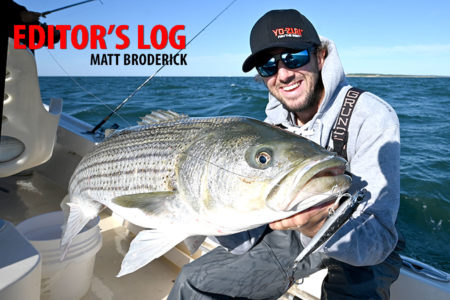Earlier this year New Jersey Gov. Phil Murphy signed a law into effect which will create a master set of rules and regulations for the state’s pending marijuana industry. While it’s still not yet legal to purchase marijuana in the Garden State, residents voted overwhelmingly last November to legalize its recreational use. So while the retail aspect remains a little hazy as state legislators wrangle over specifics, at this point possession of a small amount of cannabis has effectively been decriminalized in New Jersey.
Before you decide to roll one up on your next trip to the fishing grounds, there are a few important things to consider. First of all, boating under the influence can cost you big time; not just the fines or the grave nature of operating a motorized vessel while impaired, but what you do at the helm could cost you significant time behind the wheel as well with forfeiture of driving privileges. Not preaching here folks, just a factual reminder.
The other part of the recreational drug use equation you may not have considered – and I don’t think legislators have thought this through either – is how your personal marijuana use impacts someone else’s rights and responsibilities under federal jurisdictions. Take for example a licensed captain in the state of New Jersey; whether that professional has a six-pack ticket (referred as OUPV which stands for Operator of Uninspected Passenger Vessel) or a Master 100-ton certificate held by party boat captains operating those larger vessels inspected by the United States Coast Guard (USCG), these endorsements that allow captains to take passengers for-hire are managed by the federal government.
And that’s the gray area for your personal consideration! You see, while New Jersey, New York and more recently Connecticut have taken the necessary steps to legalize marijuana in their respective states, at the federal level it remains classified as a Schedule I substance under the Controlled Substances Act of 1970 making use and possession of cannabis illegal under federal law. And our USCG-licensed captains are governed by federal law, meaning you’re fishing under their rules and regulations!
I contacted a couple of legislators and left several messages with the USCG for an “on record” response to the cannabis conundrum with no response. I then turned to Jim Emmons, executive director of the Water Sports Foundation who has some experience navigating bureaucratic waters, and he was able to get a limited response from one of his USCG contacts.
“Even though many states have legalized it, marijuana is still considered contraband according to the federal government,” Emmons said, adding that his source said there is some indication that a violation of marijuana possession and/or use would be at the discretion of the responding federal or state boarding officers. “However, this is separate from an indication that the operator may be Boating Under the Influence (BUI),” Emmons added, explaining how a boat operator can still be subject to BUI laws regardless of whether it’s marijuana, or alcohol or anything else.
The key takeaway here is the word “discretion.” In other words, it is up to the “discretion” of federal authorities in federal waters to decide whether or not that substance – for all intents and purposes legal within 3 miles of New York, Connecticut and New Jersey – is still illegal contraband outside the 3-mile limit. So while your bag of stash may be perfectly acceptable at the Shrewsbury Rocks, once you head out to the Rattlesnake you’re at the “discretion” of federal authorities.
As for charter and headboat captains who are issued a USCG license and must adhere to federal guidelines, it’s their boat, their rules, and their butt in a sling if you should decide to partake upon the high seas.
As Capt. Quint said, “yeah it’s your charter, it’s your party, but it’s my vessel.”




